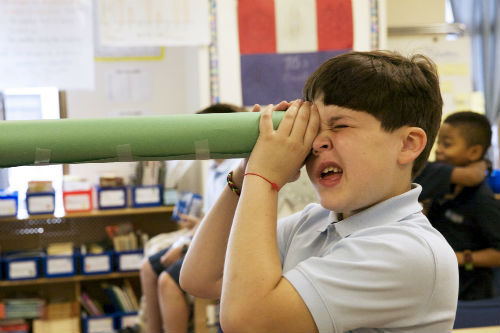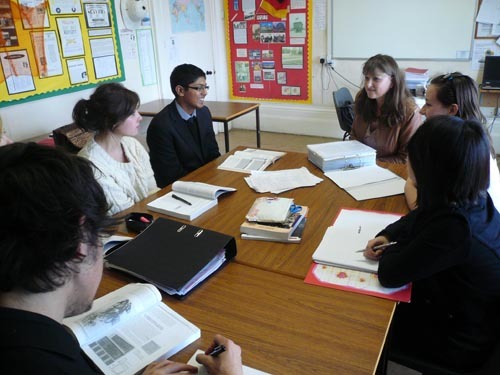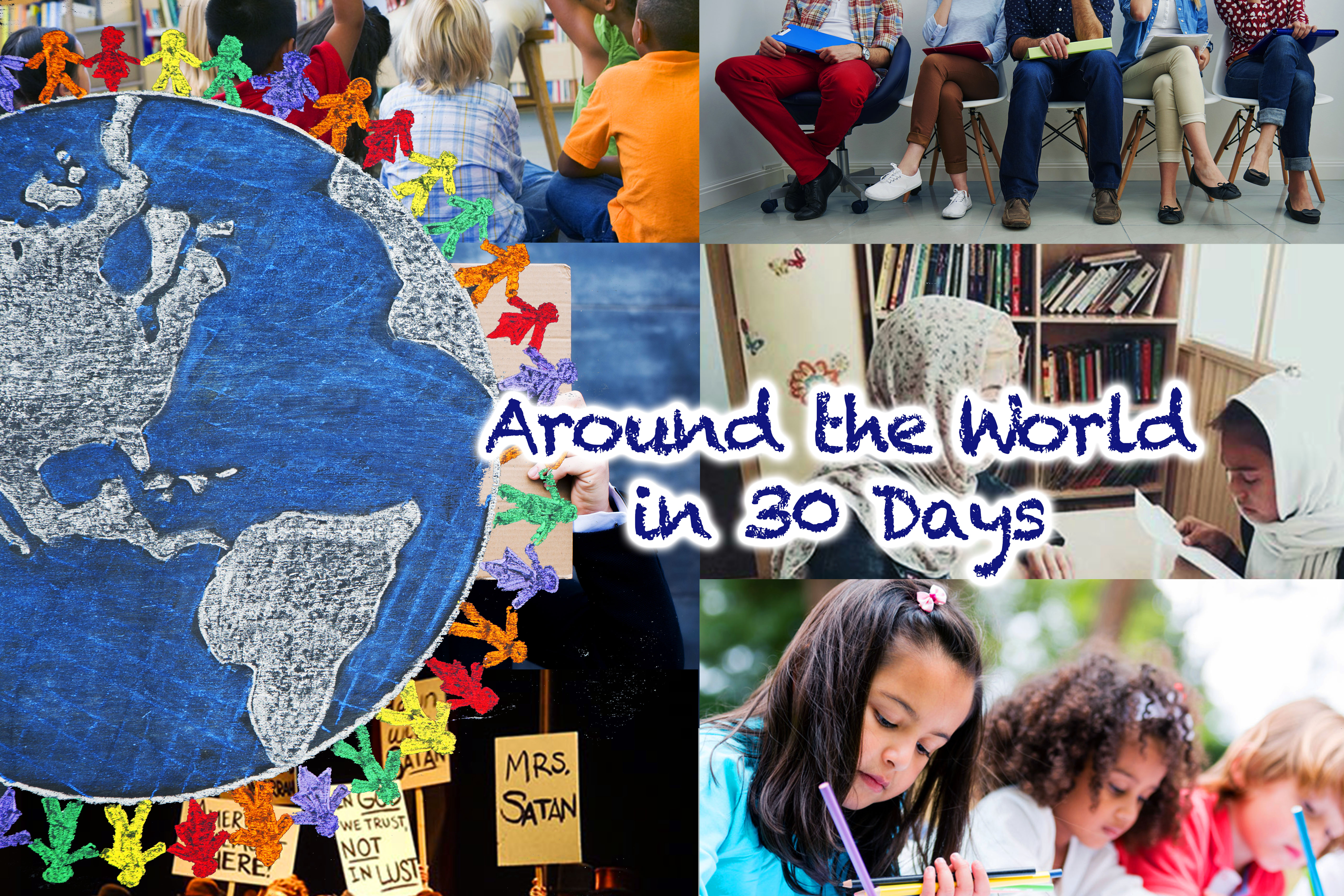C. M. Informe Global de Educación de Rubin
En mayo, Continué mis conversaciones con los líderes de opinión de China a Nueva York que dibujaban para mí el conflicto se superpone entre la creatividad, innovación, reforma, y pruebas, y compartido sus esfuerzos para crear coalescencia entre ellos. Mientras tanto, mi Top 12 Global Bloggers Maestro aportó algunos consejos muy necesarios sobre uno de los temas más candentes para esta época del año calendario escolar, es decir. combatir el estrés en el aula.
Según la Organización Internacional del Trabajo, una agencia de la ONU, desempleo mundial se situó en 201 millón de personas en 2014, 1.2 millones más que en 2013, y se espera que ese número aumente a 212 millones por 2019. La tasa de desempleo en todo el mundo actual entre los 15 a 24 años de 13%, que también se espera que aumente, es casi 3 veces superior a la tasa general de desempleo. Se cree que una falta de coincidencia de habilidades para ser un factor importante.
“How do we best prepare students for the dramatic socio-economic demands of a digital world in a global age?” In the hope of finding answers to this question, I helped organize the Oppi Festival at Leman High School in New York City. Full of innovation and debate, the festival’s timely themes of Gender: It Matters, Global Collaboration, and Living: Las Artes, allowed all its world-renowned participants to reflect deeply in a down-to-earth atmosphere on the future of learning. I sincerely hope there will be many more festivals like Oppi in cities all over the world. As to my question about preparing young people for the future, I greatly enjoyed the many perspectives shared, but especially the one from Andy Hargreaves: “by developing values that reconnect effort with reward; mediante la creación de capital social de la ciudadanía, así como el capital individual del espíritu empresarial; y haciendo que el juego y la creatividad del derecho de todos los niños.”
De Shanghai, Tuve el placer de conocer con Xu Jinjie, (Profesor de la Universidad Normal de Shanghai) y Zhu Xiaohu (Candidato a Doctor Profesor Adjunto – Instituto de Investigación de la Educación Básica, Shanghai Academia de Ciencias de la Educación) para discutir algunas de las formas de China es la combinación de lo mejor de la tradición con la innovación. Since Shanghai was top of the charts on the PISA 2009 examen, it has been a worldwide destination for educators. Although exams are deeply rooted in their culture, they are opening up to reform and creativity: “Queremos que los estudiantes tienen tiempo para explorar sus propios intereses y para tomar sus propias decisiones en el aprendizaje, and so we give them chances to do that.” Zhu Xiaohu comments. Zhu discussed a pilot for a new student achievement assessment, which will be more about producing student portfolios.
On route to the Education Fast Forward 13 Conference in Norway, it was also a great pleasure to connect with writer and teacher Howard Rheingold, a true Internet pioneer, who coined the term “comunidades virtuales” in the 1980s. His long history with the web means that he has some amazing context to provide to the problems of the present, a time in which “anybody can ask any question anywhere and get thousands of answers within seconds.” Sin embargo, Howard warns, that this information era requires that we do a lot of extra thinking work to process what information is good and bad. It requires the development of a skill he calls: “crap detection.” “La falta de control de calidad de la información pone la carga sobre el consumidor de información. Pero las trampas y las distracciones no son aspectos de la tecnología tanto como lo son los aspectos de conocimientos — es una crisis de alfabetización, no del todo una crisis tecnología.”
Por último, si bien no menos importante – in light of the new AFT and Badass Teachers study of US teachers, es decir. la Quality of Work Life Survey, Le pregunté a mi Top Bloggers docentes a nivel mundial, “¿Cuáles son las formas rápidas para combatir el estrés docente en un aula?” The answers included short-term solutions to put the teacher at ease, including taking breaks, exercising, and celebrating success, and teacher Craig Kemp’s suggestion that one cultivate a sense of humor. Richard Wells, Por otra parte, recommended long-term strategies, such as fostering a learning environment that encourages confident students. He gives some helpful ways to approach this including setting manageable personal goals for each student.

Únete a mí y reconocidos a nivel mundial los líderes de opinión, incluyendo a Sir Michael Barber (Reino Unido), DR. Michael Bloquear (EE.UU.), DR. Leon Botstein (EE.UU.), Profesor Clay Christensen (EE.UU.), DR. Linda Darling-Hammond (EE.UU.), DR. MadhavChavan (India), El profesor Michael Fullan (Canada), El profesor Howard Gardner (EE.UU.), El profesor Andy Hargreaves (EE.UU.), Profesor Yvonne Hellman (Países Bajos), Profesor Kristin Helstad (Noruega), Jean Hendrickson (EE.UU.), Profesor Rose Hipkins (Nueva Zelanda), Profesor Cornelia Hoogland (Canada), Honorable Jeff Johnson (Canada), Señora. Chantal Kaufmann (Bélgica), DR. EijaKauppinen (Finlandia), Secretario TapioKosunen Estado (Finlandia), Profesor Dominique Lafontaine (Bélgica), El profesor Hugh Lauder (Reino Unido), Señor Ken Macdonald (Reino Unido), Profesor Geoff Masters (Australia), Profesor Barry McGaw (Australia), Shiv Nadar (India), Profesor R. Natarajan (India), DR. PAK NG (Singapur), DR. Denise Papa (Estados Unidos), Sridhar Rajagopalan (India), DR. Diane Ravitch (EE.UU.), Richard Wilson Riley (EE.UU.), Sir Ken Robinson (Reino Unido), Profesor Pasi Sahlberg (Finlandia), El profesor Manabu Sato (Japón), Andreas Schleicher (PISA, OCDE), DR. Anthony Seldon (Reino Unido), DR. David Shaffer (EE.UU.), DR. Kirsten Immersive Are (Noruega), Canciller Stephen Spahn (EE.UU.), Yves Theze (LyceeFrancais EE.UU.), Profesor Charles Ungerleider (Canada), Profesor Tony Wagner (EE.UU.), Sir David Watson (Reino Unido), Profesor Dylan Wiliam (Reino Unido), DR. Marcos Wormald (Reino Unido), Profesor Theo Wubbels (Países Bajos), El profesor Michael Young (Reino Unido), y el profesor Zhang Minxuan (De China) a medida que exploran las cuestiones de educación cuadro grande que todas las naciones se enfrentan hoy.
La Búsqueda Global para la Educación Comunitaria Página
C. M. Rubin es el autor de dos ampliamente leído serie en línea por la que recibió un 2011 Premio Upton Sinclair, “La Búsqueda Global para la Educación” y “¿Cómo vamos a Leer?” Ella es también el autor de tres libros más vendidos, Incluido The Real Alice in Wonderland, es el editor de CMRubinWorld, y es una Fundación Disruptor Fellow.
Siga C. M. Rubin en Twitter: www.twitter.com/@cmrubinworld






Comentarios recientes